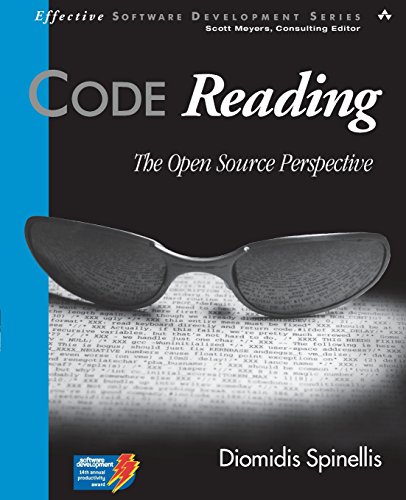(Part 2) Top products from r/golang
We found 16 product mentions on r/golang. We ranked the 36 resulting products by number of redditors who mentioned them. Here are the products ranked 21-40. You can also go back to the previous section.
21. Distributed Computing with Go: Practical concurrency and parallelism for Go applications
Sentiment score: 0
Number of reviews: 1
 Show Reddit reviews
Show Reddit reviews22. Cracking the Coding Interview: 189 Programming Questions and Solutions
Sentiment score: 0
Number of reviews: 1
 Show Reddit reviews
Show Reddit reviews23. Sams Teach Yourself Go in 24 Hours: Next Generation Systems Programming with Golang: Next Generation Systems Programming with Golang
Sentiment score: 1
Number of reviews: 1
 Show Reddit reviews
Show Reddit reviews24. The Elements of Programming Style, 2nd Edition
Sentiment score: 1
Number of reviews: 1
 Show Reddit reviews
Show Reddit reviews25. Python Cookbook
Sentiment score: 1
Number of reviews: 1
Used Book in Good Condition
 Show Reddit reviews
Show Reddit reviews27. The Logic of Scientific Discovery (Routledge Classics)
Sentiment score: 1
Number of reviews: 1
Routledge
 Show Reddit reviews
Show Reddit reviews28. Programming in Go: Creating Applications for the 21st Century (Developer's Library)
Sentiment score: 1
Number of reviews: 1
 Show Reddit reviews
Show Reddit reviews30. Code Reading: The Open Source Perspective (v. 1)
Sentiment score: 0
Number of reviews: 1
 Show Reddit reviews
Show Reddit reviews31. The Unix Programming Environment (Prentice-Hall Software Series)
Sentiment score: 1
Number of reviews: 1
 Show Reddit reviews
Show Reddit reviews32. Clean Architecture: A Craftsman's Guide to Software Structure and Design (Robert C. Martin Series)
Sentiment score: 0
Number of reviews: 1
 Show Reddit reviews
Show Reddit reviews33. Computer Networking: A Top-Down Approach (7th Edition)
Sentiment score: 0
Number of reviews: 1
 Show Reddit reviews
Show Reddit reviews34. Working Effectively with Legacy Code
Sentiment score: 1
Number of reviews: 1
Prentice Hall
 Show Reddit reviews
Show Reddit reviews



that would be very great, but maybe it needs a pretty loooong weekend. Python Cookbook DO offers a wealth of useful code for all Python programmers.
Before rolling out personal definitions, consider reading a book.
> So what is your definition of science
"All science is either physics or stamp collecting."
> And don't tell me data mining is not seeking to explain the material universe better, that is the entire point.
Please tell me you were joking.
And no, what you describe there is not science. The theory part is just applied mathematics, rest is engineering. The heuristics used are educated guesses about the model at best.
A few kids trying to infer what kind of video I'd like to watch next, they're not doing science either.
The best book on plain C is "C: A Reference Manual" by Harbison and Steele. The K&R book is too ambiguous and out-of-date.
[See here:] (https://smile.amazon.com/Reference-Manual-Samuel-P-Harbison/dp/013089592X)
That said, Go is powerful, easy-to-learn, and easy-to-use. Highly recommended.
In addition, he co-wrote The UNIX Programming Environment and The Practice of Programming with Rob Pike and The Elements of Programming Style with PJ Plauger. I've never read the Practice of Programming (add it to the wish list) but the other two books are fantastic. The Elements of Programming Style is somewhat dated (code is in PL/I and Fortran, and it discourages things like
gotowhich we all already know is bad) but a lot of it is still relevant and worth picking up a used copy if you can find it.Have a look at
strings.Join()for combining a slice of strings.Programming in Go is a great book that got me started. Everything else I've picked up on has come through reading the source code of projects on GitHub. Check out awesome-go which has a bunch of cool projects and examples. Otherwise, referencing the docs and source of Go's standard packages.
It was this one:
https://www.amazon.co.uk/Sams-Teach-Yourself-Hours-Programming/dp/0672338033
It does have its weaknesses as well, I'd maybe give it 3.5/5? Some of its explanations of programming concepts seem a little off, or poorly explained. But if you're already a programmer and just need some way to structure covering the basics of Go, I'd say it's a decent option. Although Google's own intro tutorial is also pretty decent, and free: https://tour.golang.org/welcome/1
BTW, have you read the Feathers book on legacy code? It's pretty damn good and helped me a lot.
I'm not saying you're a bad developer. What I am saying is that Feathers is a rare genius.
edit: https://www.amazon.com/Working-Effectively-Legacy-Michael-Feathers/dp/0131177052
(There might be a newer edition)
The LISP 1.5 manual is a great example of concise tech writing, too.
https://www.amazon.com/LISP-Programmers-Manual-Michael-Levin/dp/0262130114
Best book: Computer Networking Top Down Approach: https://www.amazon.com/Computer-Networking-Top-Down-Approach-7th/dp/0133594149/?pldnSite=1
It’s not Go specific but you need to start at the fundamentals.
Good advices for code reading strategies can be found in this book http://www.amazon.com/Code-Reading-Open-Source-Perspective/dp/0201799405, not in Go however.
I had a recruiting firm send me this book. Pretty interesting.
https://www.amazon.com/Cracking-Coding-Interview-Programming-Questions/dp/0984782850
The Art of Multiprocessor Programming
https://www.amazon.com/Clean-Architecture-Craftsmans-Software-Structure/dp/0134494164
You* can try this book - Distributed computing with Go.
After a brief intro into testing with Go and other such stuff, it explains how goroutines & channels work under the hood then shows how to use them. And rest of the book is about using these concepts with networking applications etc.
Jeff Atwood has a nice take on rewriting (and Joel's post): https://blog.codinghorror.com/when-understanding-means-rewriting/
>Joel thinks rewriting code is always a bad idea. I'm not so sure it's that cut and dried. According to The Universe in a Nutshell, here's what was written on Richard Feynman's blackboard at the time of his death:
>
>\> What I cannot create, I do not understand.
>
>It's not that developers want to rewrite everything; it's that very few developers are smart enough to understand code without rewriting it.